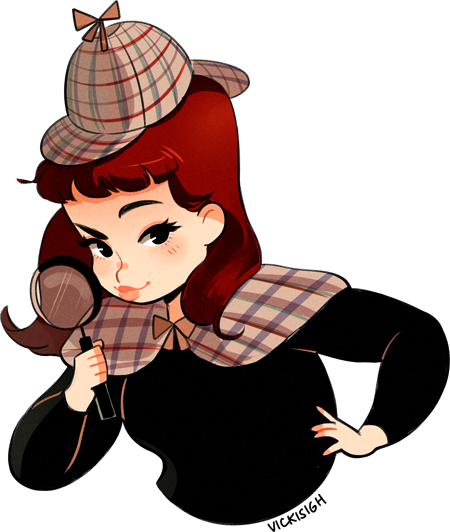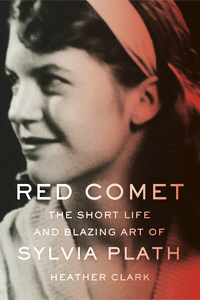
Between The Lines is a sporadic feature on Pop! Goes The Reader in which authors and other industry professionals provide further insight into the writing and publishing process in the form of interviews, guest posts, etc. So, sit back, relax, and enjoy as we read between the lines.
Hi everyone! Today I feel unspeakably lucky to welcome my friend, author Paula Stokes, to Pop! Goes The Reader. More specifically, Paula and I will be talking about her forthcoming YA novel, Girl Against The Universe, which is scheduled to be published on May 17, 2016 by HarperTeen. I was fortunate enough to have been given the opportunity to read an early draft of this novel in August 2015, and I promptly fell in love. Girl Against The Universe tells the story of Maguire, a girl suffering from grief, anxiety and post-traumatic stress disorder in the wake of the death of her father, brother, and uncle, an event for which she feels at least partially responsible. What follows is a sensitive, thoughtful and beautifully nuanced exploration of mental illness by Stokes, including a close examination of its effects and treatment. Maguire is a resilient protagonist who takes an active role in her treatment and recovery, and who is supported on her journey by a delightful cast of secondary characters including a loving, blended family, caring friends, and a boy who is sure to steal reader’s hearts.
I will be sharing a more in-depth review of the novel closer to its publication date, but today Paula has agreed to stop by the blog in order to speak specifically about the portrayal of mental illness in Girl Against The Universe, as well as the erroneous and potentially dangerous stereotypes about mental illness which are all too often represented in popular media. Best of all, Paula has been kind enough to offer a signed ARC of Girl Against The Universe to one lucky reader in an international giveaway! All of the information about this contest can be found at the conclusion of this post.

About Paula Stokes
Paula Stokes is the author of several young adult novels, most recently Liars, Inc., which received a starred review from Kirkus. Paula has two new YA novels releasing in 2016 and two more scheduled for 2017. When she’s not writing (rare), she enjoys hiking, kayaking, and having adventures in faraway lands. Paula lives in Portland, Oregon.
I have an undergraduate degree in psychology and an advanced degree in nursing, but it wasn’t until I was talking with one of my psychologist/author friends that I realized how many negative mental health tropes and stereotypes are perpetuated by movies, TV, and books.
Of course I am not talking about all movies, TV, and books, and sometimes a storyline depends on a certain trope. If you’re writing a book about an evil therapist who does human experimentation, then yes, you’re going to need an evil therapist. But sometimes we rely on harmful or overdone tropes even when we don’t need them, because we’ve seen them a lot, and the more we see something the more true it feels, right? Except sometimes it’s not true at all.
With that in mind, one of my goals for Girl Against The Universe was to portray mental illness in a way that helps debunk some of the following myths. (FYI: I’m using “mental illness” to describe anything that can be diagnosed via the standards in the newest edition of the Diagnostic and Statistical Manual of Mental Disorders published by the American Psychiatric Association.)
Therapists are evil/incompetent/lecherous.
No wonder people don’t want to seek treatment. All those thrillers have shown us that we’re just going to be manipulated and used for Dr. Mysterioso’s nefarious purposes 😉 Or if not that, he’s surely going to hit on us when we’re at our most vulnerable. Add in the therapists who are so clueless or incompetent that it seems impossible they could have actually made it through graduate school, and today’s mental health professionals can get a pretty bad rap. The reality is that most therapists are hardworking, competent individuals who can help you navigate anything from the daily stress of school or work to more serious psychological problems.
In Girl Against The Universe, I purposely made my psychologist a young, hot male. And then I purposely made him have excellent boundaries, and made my main character not physically attracted to him. That might not make for quite as scandalous of a tale, but the reality is, most therapists do not hurt or hit on their clients.
Psychotropic medicines are bad.
Doctors don’t prescribe things like mood stabilizers and anti-anxiety medication lightly. If they give you a prescription, it’s because they think it will help you. Also, it’s normal to start a medication and need to have your dosage adjusted. Perpetuating the idea that it’s okay to quit your psych meds because they make you feel “fuzzy-headed” is potentially harmful. I once took an antibiotic for an infection and it made me feel fuzzy-headed. When I called my MD, he switched me from twice daily to once before bedtime and the side effect actually worked to my benefit and helped me sleep. Most side effects can be reduced or eliminated with a switch in medication, dose, or schedule. I’m not saying medication benefits everyone—some people do fare better once they quit their meds. But that’s a decision to be made between a client and a clinician. Having a protagonist quit their meds on their own with no consequences is not a good way to show strength or independence.
Maguire is not taking medication in Girl Against The Universe because she has developed effective (but somewhat unhealthy) coping mechanisms to deal with her chronic anxiety. However, she has taken meds in the past and at one point asks her therapist about getting an anti-anxiety prescription. He tells her that he can talk to her pediatrician if she really feels like she needs it. Medication is simply presented as one of several treatment options for Maguire, without any judgment or stigma attached.
Romance can cure mental illness.
I think meeting the right guy at the right time can cheer up someone who is a little bit sad or discouraged, but the idea that a guy (or girl) can come along and magically fix a person’s deeper psychological problems is a trope that needs to go away. New love interests are exciting and fun, but they also come with a ton of anxiety and expectations. When you add that burden to someone already struggling, more often than not romance complicates or exacerbates mental illness. Sorry, fairytale fans, true love doesn’t really conquer all, or if it does it’s the kind of unconditional love you get from your family and friends, not the romantic feels you get from the hot boy next door.
Even though Maguire is attracted to Jordy, she puts off his advances for the entire first half of Girl Against The Universe because she’s aware she’s not healthy enough to be in a romantic relationship. When they do eventually get together, Jordy’s needs and expectations cause problems for Maguire and force her to make some difficult decisions.
Mental illness can be magically fixed.
Some mental illnesses (again, per the diagnostic criteria in the DSM-5) can be cured while others can only be managed. It’s possible to overcome social anxiety or borderline personality disorder or anorexia or dissociative identity disorder, etc. But successful treatment of most psychiatric issues takes months, if not years. I understand the temptation to want to end a book or movie with the protagonist totally cured, but unless your story takes place over a long time span, that probably isn’t realistic.
Girl Against The Universe takes place over five months, and during that time Maguire makes huge strides toward overcoming her PTSD and anxiety, but at the end of the book she knows she still has work to do. The main changes for Maguire are that she has learned healthier thought patterns and she’s gone from avoiding her issues to facing them head on. Finally, she has the tools to work on healing herself completely.
Oh, and in case you guys don’t know me, you can feel safe mentioning any book, movie, etc. in these comments. We all have different opinions, which means that what works for you might or might not work for Jen and me, and that’s totally okay.
I’m not here to criticize anyone’s opinions or publicly condemn anyone’s creative work. I’m just hoping the post will make both readers and writers think critically about the way mental illness is portrayed and the comments will help me add to my TBR 🙂
I’ll get us started by recommending the movie Silver Linings Playbook. I haven’t read the book, but I thought the mental illness portrayal in the film was frighteningly good. (It hit me so hard at one point I thought I might have to leave the theater.) And even though the main characters are in a romance, at no point to me does it feel like that romance is “curing” their mental illness. And at the end of the movie, they still have work to do.

Title Girl Against The Universe
Author Paula Stokes
Pages 400 Pages
Intended Target Audience Young Adult
Genre & Keywords Contemporary, Realistic Fiction, Mental Illness
To Be Published May 17th 2016 by HarperTeen
Find It On Goodreads ● Amazon.com ● Chapters
Maguire is bad luck.
No matter how many charms she buys off the internet or good luck rituals she performs each morning, horrible things happen when Maguire is around. Like that time the rollercoaster jumped off its tracks. Or the time the house next door caught on fire. Or that time her brother, father, and uncle were all killed in a car crash — and Maguire walked away with barely a scratch.
It’s safest for Maguire to hide out in her room, where she can cause less damage and avoid meeting new people who she could hurt. But then she meets Jordy, an aspiring tennis star. Jordy is confident, talented, and lucky, and he’s convinced he can help Maguire break her unlucky streak. Maguire knows that the best thing she can do for Jordy is to stay away. But it turns out staying away is harder than she thought.
From author Paula Stokes comes a funny and poignant novel about accepting the past, embracing the future, and learning to make your own luck.

Paula has been generous enough to offer to give away a signed ARC of Girl Against The Universe to one lucky reader. Best of all, this contest is open internationally! Enter by using the Rafflecopter below for your chance to win. And tell us in the comments one book or movie that you think does a fantastic job of portraying mental illness and what you liked about it. (No spoilers, please!)













24 Responses
I can’t think of a book or movie off the top of my head that portrayed mental illness really well which is partially why I’m so excited to read Girl Against the Universe!
Kristin recently posted…BookTube: My Intimidating TBR Pile Tag
To be honest, I didn’t realize mental illness played such a huge role in Girl Against The Universe, but it’s good that it is being used to portray mental illness more correct. I do notice some of those trends in the few mental illness books I’ve read, especially the romance-fixing one. However, one book that did a fantastic job is Every Last Word by Tamara Ireland Stone because, if I remember correctly, her OCD isn’t “cured” over a course of two days because of some boy. It takes her several months and even some made up people along the way. I’m excited to read GATU, and thank you Paula for this post! It really opened my eyes on some literary trends :).
Jess @ POB! recently posted…Dear Lorraine Hansberry, | A Raisin in the Sun Review
This post is so amazing! Love it so much & thank you for the giveaway.
It’s so nice to see someone point out some of these tropes. Particularly the meds one! If I had a quarter for everyone who asked me if I was worried my meds were ‘changing’ my brain…well, I could go to the arcade for a while. Excellent article!
Sarah Kay recently posted…Badass villains and how to write them
It’s a small bone to pick, I suppose, but you preface your dive into these myths by saying some of these tropes aren’t true at all. I haven’t ever had an evil / manipulative psychiatrist, so I suppose I could be mistaken, but to my mind that’s sort of dramatic on the face of it and I think most readers would recognize that as titillation for entertainment’s sake. But incompetence? I can only speak for my experience, but incompetence is a real, serious problem in the mental health field. It feels like bad form to lump that in as a myth with the others. Again, I’m only going on my own experience, but I’ve visited seven therapists or psychiatrists in my life. Five were useless, like chatting to friends, and two were so harmfully incompetent that it may actually have qualified as malpractice. I went to them because I knew something was wrong with me, but I’m not a mental health professional. I thought my future was in an asylum until I took a college abnormal psych course and learned what depression and anxiety actually look like, and that OCD isn’t about being a little picky about how you organize your closet. Out of all the misconceptions about mental illness, I think the biggest has got to be what it looks like when a person has it. It’s mundane, it’s easy to doubt yourself and pretend you’re fine, it can be completely invisible and still terrifying to talk about. I’m not sure what to call this myth, but it feels like a grievous oversight on this list. This is far too long a comment and it’s not perfectly worded, but I hope it makes some sense and isn’t too grouchy. I just think these things are serious and need to be discussed with great care and honesty.
And I just realized I didn’t thread your reply properly. Sorry again >_< I just wanted to be sure I heard and respect your opinion. Thank you for posting.
Paula Stokes recently posted…Giveaway Round-Up!!
Hi Elizabeth.
I’m sorry you’ve had so many negative experiences with therapists/mental health professionals. I’ve worked in the medical field for five years and the people I know are really caring and committed. I feel like the percent of incompetent therapists probably isn’t much different than the percent of incompetent internists or surgeons or plumbers, for that matter, but I don’t see a lot of inept cardiac surgeons in popular media. Of course, it’s always possible that I’m wrong, and I will openly admit I can’t speak to the licensing and requirements for therapists in other countries.
Re the oversight, I totally agree that the over presentation of mental illness as extreme–hallucinations, schizophrenia, suicidal ideation, etc–skews the public’s perception of what it is, but I touched on that in a post I did last month (about how treatment isn’t just for people with life-threatening issues and that mild to moderate mental illness is quite common) and I made the decision not to double-up here because this post had gotten quite long. I apologize if I offended you with that omission.
I do think the novel does a good job of “showing” that–Maguire is fairly high-functioning despite her PTSD and anxiety, and looks just like everyone else on the outside. I wrote the author’s note (revised for the finished book) with stats that emphasize how common mental illness is and to encourage people to seek help if they’re struggling instead of “toughing it out.”
Thanks for your thoughts.
Paula Stokes recently posted…Giveaway Round-Up!!
I don’t know if it necessarily does a good job of portraying mental illness but What About Bob is one of my favorites. 🙂 He takes baby steps to help him in every day life and quite honestly taking baby steps has helped me.
Also, I personally have not had much success with mental health professionals. When I was much younger and in 3rd grade Or so I started seeing someone because I would have bad panic attacks and couldn’t go to school. He prescribed a bunch of different medicines that had horrible side effects including weight gain. He once told me I was gaining too much weight and should try to look at girls on magazine covers for inspiration because that’s what girls should look like. For the last half of each session my mom would come in and he would talk about his divorce with her. In hindsight I consider him a pill pusher though I have no proof. He eventually moved and my new doctor slowly weaned me off all the medicines I was on before he moved. (Both My therapists moved and so did Bob’s….hmmmm) 🙂 I know my doctor wasn’t the normal experience but it’s hard to want to see another after that.
I’m very excited for Girl Against the Universe because I am excited for the “love doesn’t cure all aspect” but I can very personally relate to stories with unprofessional therapists, psychiatrists, or psychologists. I didn’t mean to get all serious but it does happen. Also I am not against pills or antidepressants or medications for mental illness of any sort. It’s just important to find the right ones. (I hope this comment isn’t offensive I don’t mean it to be.)
Ugh, CB. It’s disheartening that you’ve had so many bad experiences as well. *hugs*
Oh, poor Bob. That movie made me sad because I just wanted to hug Bob the whole time 😐
Paula Stokes recently posted…Giveaway Round-Up!!
Sometimes when I’m tired my”should I really share this very personal story on the internet” filter disappears. Anyways….thanks and *hugs back*
Great post! Hearing how GATU slays these mental illness myths/tropes makes me want to read it even more. It’s something so many people experience and I’m always eager to see it represented honestly. Off the top of my head, Saving Francesca does a great job at that.
Great post! My favorite depiction of mental illness is It’s Kind of a Funny Story by Ned Vizzini. That book saved my life when I was 13 and I will be forever grateful for its honest and raw, but also funny, depiction of mental illness. I revisit even now and again as I continue to get help for my anxiety and other issues. Can’t wait to read GATU!
This is such a great post! I don’t know much about mentall illness, seeing that no one in my family or my close friends have it, so I only know about it from book or movie (which is sometimes not 100% accurate). This post made me know more about mental illness, and I think it’s really important so people won’t have any misunderstanding about it. One book that I think handle mental illness well is Made You Up by Francesca Zappia. It feels real, and the mental illness didn’t magically gone because of some boy. Anyway, thanks for writing this Paula! <3
Oh gosh, Girl Against the Universe sounds like EXACTLY what I’ve been looking for. I recently read a book, where there was a hot young male therapist, yes, but then he hit on the MC and I WAS SUPER FRUSTRATED OF THAT, BECAUSE THAT SHOULD NEVER HAPPEN.
Just in general, Girl Against the Universe sounds like a perfect book that manages to talk about mental illness really well! Thanks for sharing the interview!
Geraldine @ Corralling Books recently posted…Conversations | The New Meme On The Block
I really liked It’s Kind of a Funny Story because it mixed the heavy storyline with small funny moments.
The only one I can think of off the top of my head is Underwater. I thought it was well-written and eye-opening.
Nicole @ Boundless Bookaholic recently posted…Monthly Wrap-Up – March 2016
Well, last summer I read Made You Up by Francesca Zappia, because I go to the end of the alphabet and work my way up to find new books.
This book describes Alex living with her mental illness, schizophrenia. The key word is LIVING. Often books want to show the discovery of their mental illness, whereas Made You Up shows how Alex is LIVING with her illness. She uses a camera to take pictures of things she’s not sure is real, so once she looks back at it, she can see what is real and what is made up.
This book completely opened my eyes to being inside the mind of a schizophrenic. It is an amazing book, and the characters are amazing and the story is just priceless and precious 🙂
still alice. though i admit i only watched the movie and have not read the book…. the thing i hate the most about mental illnesses and the like is when the others who are not suffering it and truly have no clue what it’s like and are essentially trying to pretend that its all not there don’t at all allow the person to be the illness that they are and try to tell them what to do and how to be when actually just allowing them to be/do whatever they want is the most helpful thing they can do. this movie explores that and has the character who is all ‘why not let her do it if it’ll help? – what’s so bad about it’ and all that. you know?
also – well i mean sooo well played by the main actress. (whose name i’ve momentarily forgotten – of course)
Every Last Word by Tamara Ireland Stone. That book destroyed me, the heroine has OCD and she tries so hard every day to fit in, it’s heartbreaking to see her internal despair and pain while almost everyone around has no idea of what’s going on. I love how that book feels so real, while reading I felt like I could actually reach out and touch Sam, because it’s like she was right there next to me. I understood her, every step of the way, even if sometimes she didn’t understand herself. It’s a fantastic book.
I CAN’T WAIT to read GATU!
It’s hard to think of just one, so I’m going with Laurie Halse Anderson’s Speak, Winter Girls, and The Impossible Knife of Memory. Speak and The Impossible Knife of Memory give, to me, a true representation of PTSD (but on very different levels). And Winter Girls depicts the mindset of girls with eating disorders pretty well (from what I remember, as I read that one a long time ago, and I’ve never experienced that disorder myself).
On a separate note, the therapists I’ve dealt with were extremely incompetent but were never in appropriate. Thanks.
Hi guys. It’s the last day of the giveaway so I just wanted to drop back by and thank you all for your comments, especially the ones with book recommendations! I loved Every Last Word and Speak and have heard amazing things about some of the other titles you suggested.
Paula Stokes recently posted…The Great GATU Graphics Contest!
I can’t think of any fictional movies or books which best showed the mental illness but I saw Beautiful Minds few days back and I really liked it, it is based on the life of a great scientist John Forbes Nash, Jr.
I cannot wait for this! I don’t know how I missed this giveaway but thank you to both! <3
I don't know about mental illness but I did read JoJo Moyes book Me Before you which I thought was an outstanding book! I loved it and I cannot wait for the movie. I love how it illustrates to do what you love and be happy, dare to dream a little. I love you Will and Lou <3